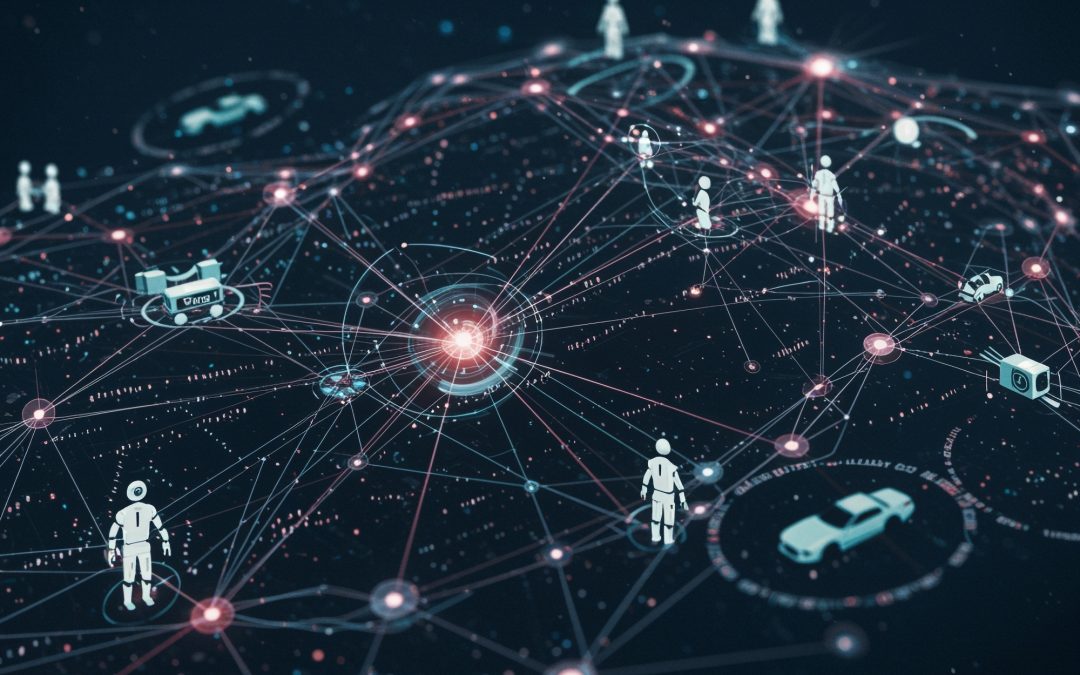Explaining how we got to where we are with AI today and what it means.

Generations Journal, vol. 49, no. 2 (Summer 2025)

Explaining how we got to where we are with AI today and what it means.

Potential reforms exist to prevent digital ageism and AI biases.

Diversifying training data is key to preventing ageism in AI.

What are the risks/benefits to AI in employment, healthcare, and fraud, especially for older adults?

AI’s emerging role in empowering older adults, caregivers, and health systems.

AI is positioned to become a powerful ally in addressing age-related neurodegenerative conditions.

Facilities should quickly get up to speed to ensure AI is used well in long-term care, but also proceed with caution.

AI in older adult healthcare is poised to play a very positive role, but must be approached equitably.

As monitoring becomes more sophisticated, ideally it can free up caregivers’ time to better bond with older adults.

A strong network of like-minded organizations and individuals is crucial to aging while Black.
Generations Journal, vol. 49, no. 2 (Summer 2025)
Abstract: This article traces the evolution and history of Artificial Intelligence from its theoretical beginnings to modern breakthroughs like deep learning, and more familiar versions such as large language models, manifested through technologies such as ChatGPT. By...
Imagine this. During the COVID-19 outbreak when the city is locked down, grocery stores close early and stepping outside feels like a risk. Evelyn, a 76-year-old retired nanny, lives alone, her children and grandchildren hundreds of miles away, and feels a need...
The American Society on Aging in 2024 hosted the first AI Summit in the OnTech conference, as part of the annual On Aging conference. Co-authors and Journal Guest Editors Dan Andersen and Faizan Wajid, members of the Explore Digits team, were honored to serve on a...
Abstract Artificial intelligence (AI) offers significant potential to enhance the lives of older adults through innovations like digital assistants and self-driving cars. But AI also poses risks, including inaccurate decisions and biased results. This article explores...
Abstract AI is transforming healthcare by reshaping diagnostics, streamlining healthcare operations, and offering new pathways to support elders. This article examines current and future applications of AI in healthcare, with a focus on older adults and the care...
Abstract Artificial intelligence (AI) is transforming the early detection, diagnosis, and care of neurodegenerative diseases in older adults. This article reviews current AI applications in imaging, digital biomarkers, and electronic health records for conditions like...
Abstract: Artificial intelligence (AI) is transforming industries, and long-term care is no exception. With the advent of large language models and agentic (capable of achieving independent outcomes) AI, aging services providers must rapidly adapt to harness benefits...
Abstract The global aging population presents profound social, economic, and healthcare challenges, necessitating innovative approaches to extend healthspan—the period of life spent in good health. This article explores the transformative role of artificial...
Abstract As the older population grows, elder care demand increases, putting significant pressure on professional caregivers and family members. Caregivers often face emotional and physical strain, while older people risk social isolation and delayed medical...
Abstract For Black elders, community is more than a support system; it’s a source of connection and well-being. As the world becomes increasingly digital, artificial intelligence (AI) is emerging as an important tool with the capacity to deepen or disrupt these...
Abstract Older adults, their families, their communities, and public health and social services agencies share the desire to enable individuals to age in place (Malani et al., 2024). Over the past 25 years, nonprofit virtual villages have emerged as important...
Note to readers: To solicit this conclusion from ChatGPT, the guest editors described the issue themes, sent it the final articles and asked for the article ideas and themes to be consolidated in a short conclusion. The below is that result, which was also run through...
Suggested citation for articles in this issue: [Last Name(s), First Name(s)]. “Article Title.” Generations Journal, vol. [#], no. [#] [season and year (ex. Fall 2024)]. [URL]
Generations Journal is the quarterly journal of the American Society on Aging. Each issue is devoted to bringing together the most useful and current knowledge about a specific topic in the field of aging, with emphasis on practice, research, and policy.